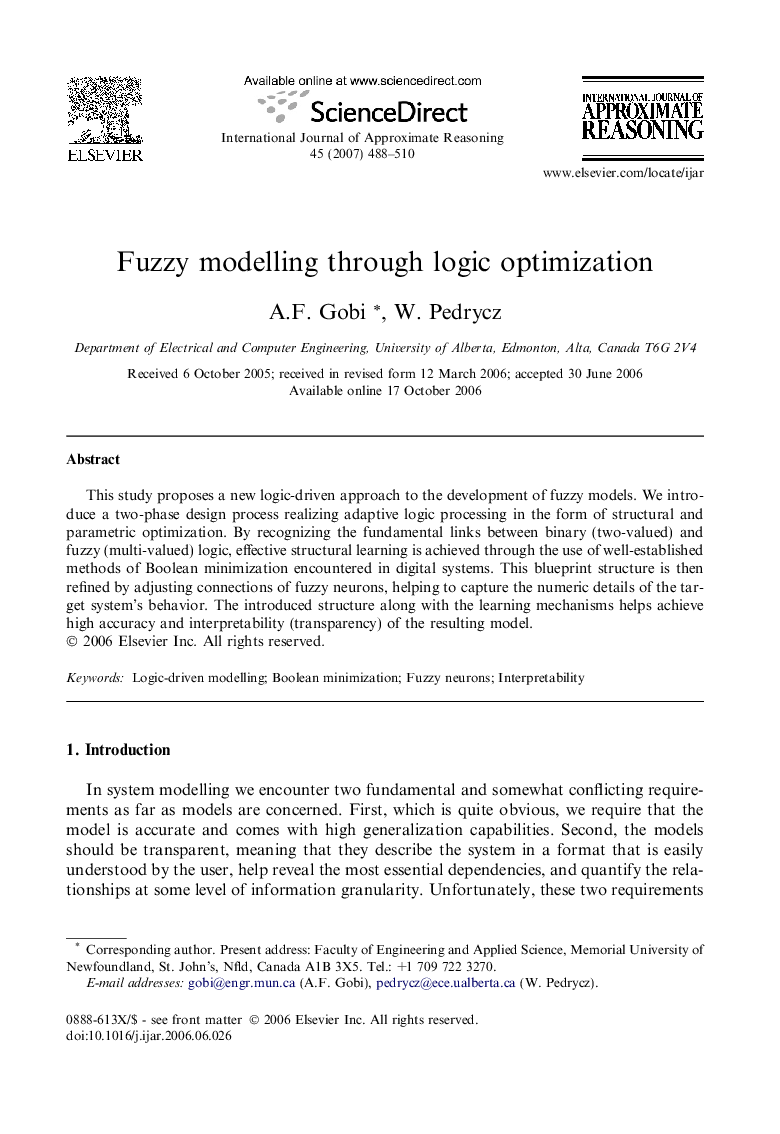| Article ID | Journal | Published Year | Pages | File Type |
|---|---|---|---|---|
| 398814 | International Journal of Approximate Reasoning | 2007 | 23 Pages |
This study proposes a new logic-driven approach to the development of fuzzy models. We introduce a two-phase design process realizing adaptive logic processing in the form of structural and parametric optimization. By recognizing the fundamental links between binary (two-valued) and fuzzy (multi-valued) logic, effective structural learning is achieved through the use of well-established methods of Boolean minimization encountered in digital systems. This blueprint structure is then refined by adjusting connections of fuzzy neurons, helping to capture the numeric details of the target system’s behavior. The introduced structure along with the learning mechanisms helps achieve high accuracy and interpretability (transparency) of the resulting model.
